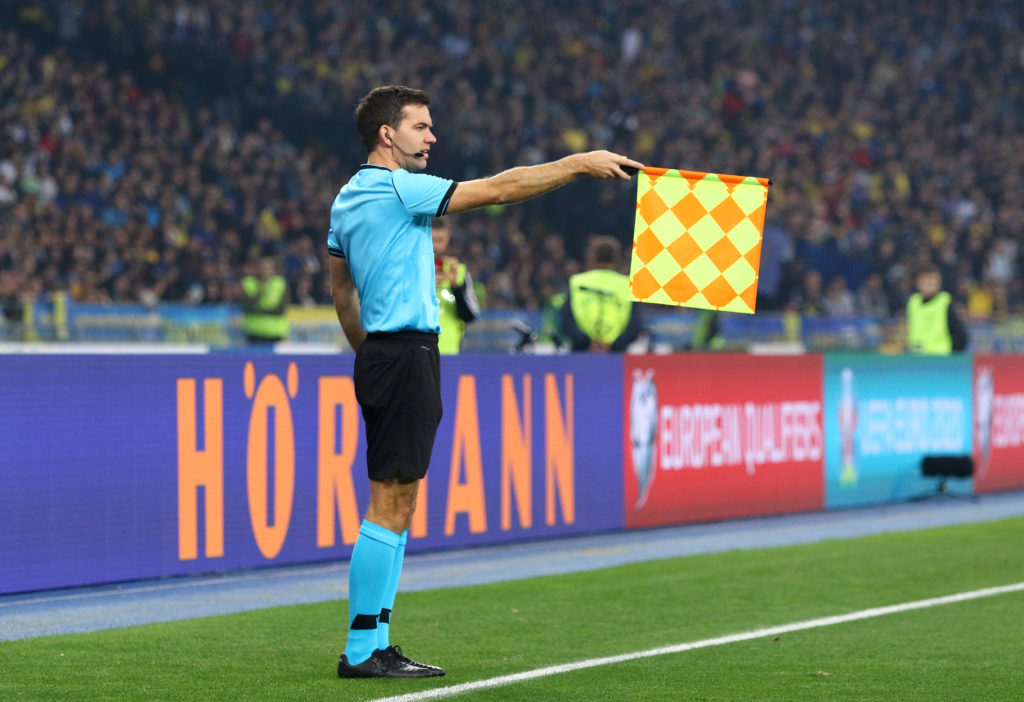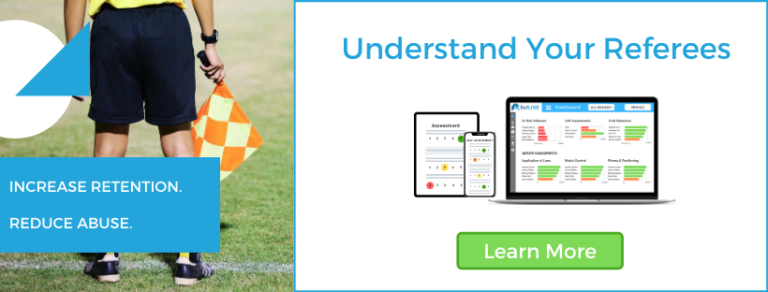Remaining Confident and Prepared When not Receiving an Appointment.
“I’ve not been appointed to a game this weekend! I can’t believe it!”
When you are regularly given games by your appointments officer and suddenly find yourself without a fixture, it often comes as quite a shock. There is often no warning when you are not going to be put onto a game even when you might have had a bad game, an off night or a previous poor performance.
Thoughts enter your mind, such as:
- “I’m better than who they’ve put on that game.”
- “I only had one bad game.”
- “My assistants let me down in my last fixture.”
- “Why am I not on the list?”
- “The appointments officer has never liked me.”
- “Will I receive another appointment again?”
Being stood down can be embarrassing, especially if it happens during the middle of a season and you’ve planned to do a game where your friends and family may be watching.
When you are without a game, your body is filled with anger, frustration and sadness. It is hard to focus, be a good colleague, support others whom you regularly work with, hope the official doing the game you wanted has a good game and be mentally prepared in case you’re needed to cover a game at the last minute.
However, it is especially important to be mentally prepared when you without a fixture. Instead of taking it personally when you are not appointed to a game, see it as an opportunity to improve your refereeing ability.
Watching a colleague’s game may give you a different perspective on officiating. You may see things in their style of refereeing that you like and could add to your brand. You can examine how other officials approach their fixtures and handle mistakes. You can learn from your colleague’s mistakes.
Separate to the potential learning opportunities, when you are not on a game and forced to face adversity, you have a great opportunity to develop your mental toughness. If you have the wrong mental approach, you are left with nothing but bitterness.
As officials we closely interact with players, the case, in the United States, of NFL quarterback with the Buffalo Bills, Tyrod Taylor, who was benched after a 5-4 start to the 2017 season while the team was still chasing a place in the playoffs is a very interesting one. What was even harder to accept for Taylor was that he was being benched for a young, unproven talent who had been drafted in the fifth round. Taylor, a team captain, was in the midst of a respectable season throwing for 10 touchdowns and only three interceptions.
“I’m obviously disappointed. I don’t agree with the decision, but ultimately Coach McDermott has a vision for this team, what he feels is best for the team, as well as the owners and GM. So I have to move forward and continue to be the leader and teammate that I am from a different role.” – Tyrod Taylor, Buffalo Bills
Taylor wasn’t only being gracious after being benched; he was staying in the game mentally by finding a way to contribute and being mentally prepared for the next time he would be out playing on the field. This proved to be the best attitude, as when Taylor featured in the very next game, he threw for 158 yards and one touchdown in the second half.
“With every negative situation, comes an opportunity”
It is your choice whether you seize that opportunity or not.
Advice for building a growth mindset in response to being stood down:
Of course it hurts to not be given a fixture. Allow yourself a short amount of time to make peace with those feelings.
Then ask yourself:
- “What can I learn from not being put onto a game?”
- “How can I use this situation to improve my refereeing ability?”
- “What can I contribute to my colleagues even when I’m not on a fixture?”
Talk to your Coach, Mentor or Referee Manager about what you can do to improve and get another fixture soon. Set a plan including goals you can set yourself to help you improve in those areas.
Of course, you shouldn’t get stood down for a below-par game mentality, as that lies within your sphere of control!
At The Third Team I work individually and in collaboration with different professionals where I have developed workshops associated with Resilience and Mental Toughness Development to help referees. The workshops are interactive, where referees are encouraged to open up and share their experiences to help each other.
Feel free to contact me if you’d like to know more about my workshops and how I could help you or your officials.
Best Wishes,

Nathan Sherratt
Referee Educator & Managing Director of The Third Team

Nathan Sherratt
Nathan Sherratt, Referee Educator, Resilience Trainer and Managing Director of The Third Team. A Mental Toughness Practitioner based in County Durham, North East England.


